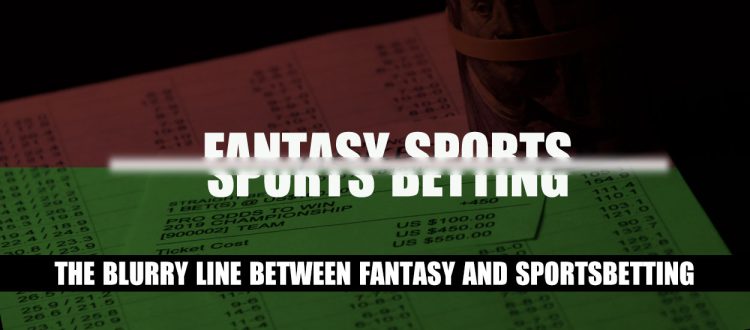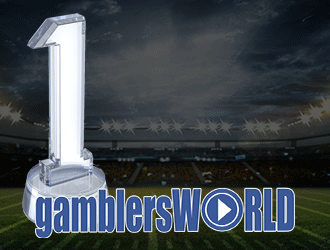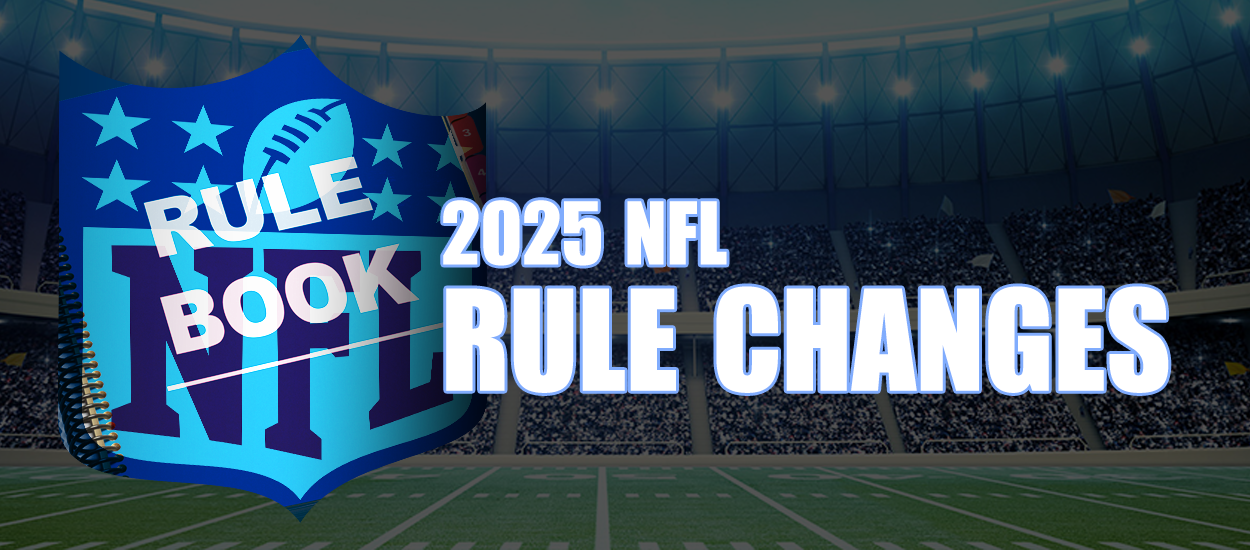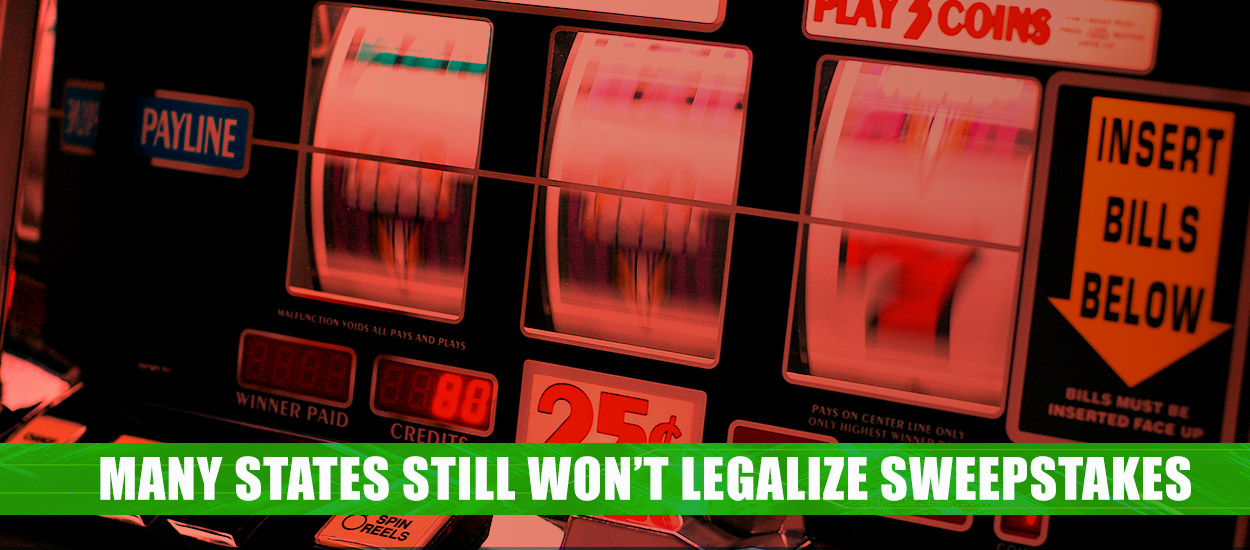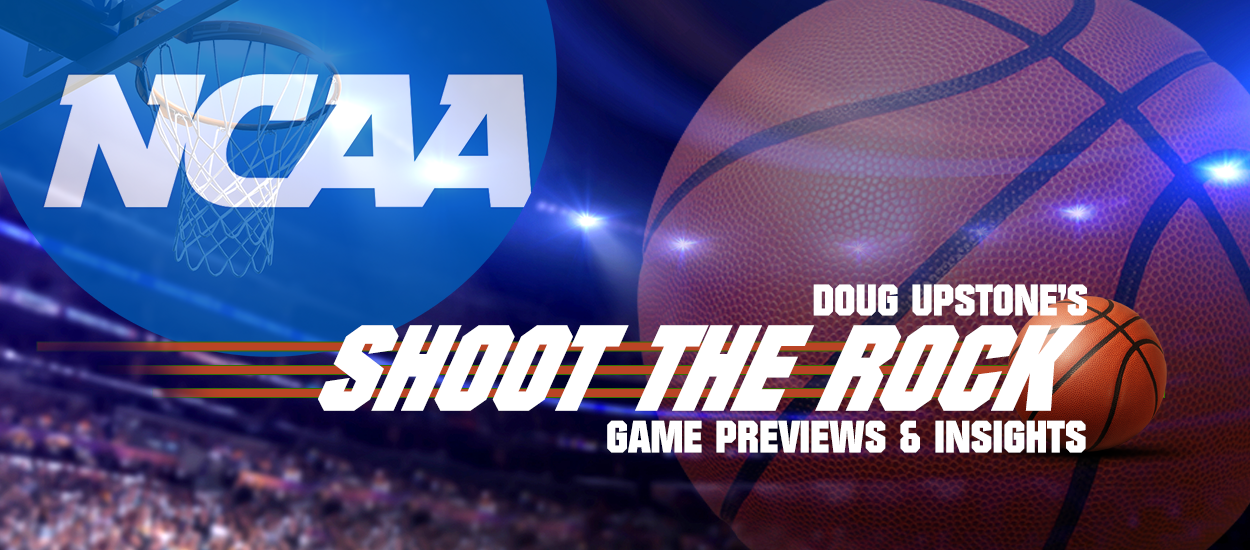Cease-and-Desist orders have been handed out to DFS companies in several states
In 2006, George W Bush signed the Unlawful Internet Gaming Enforcement Act (UIGEA) which made it illegal to fund interstate gambling illegal with a few exceptions. Carveouts were put in place for lotteries, horse racing and fantasy sports. There’s little question that when the lawmakers drafted the bill, the carveout for fantasy sports was meant to apply to year-long rotisserie leagues or week-long contests for major tournaments, like March Madness, which companies like Yahoo and ESPN ran every year. Those contests are generally free, but lawmakers who demanded that fantasy sports be excluded from the UIGEA rules wanted the ability for companies to charge an entry fee to increase prizes, which would bring in more competition as well. The lawmakers also wanted to avoid a situation where private individuals who run fantasy drafts, often across state lines with friends, could be charged with a crime.
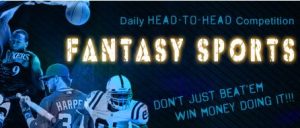 The UIGEA passed in November 2006, but regulations for it were drafted only about a year later, and little thought was put into the exact details of what was legal and what was not. Consequently, there was no mention of a timeframe for bets in fantasy sports to be legal (i.e. how many days the contest would have to last to be legal), and there were no limits mentioned for contest fees. Consequently, Matt King, who founded FanDuel, and Jason Robbins. who helped create DraftKings, came up with the idea of Daily Fantasy Sports (DFS). Unlike rotisserie leagues which last for months, daily fantasy sports are fantasy contests which are settled in the same day they are made. At the time, there was some debate over whether this was legal, but lawyers for both companies concluded that the wording of the UIGEA did not make DFS illegal.
The UIGEA passed in November 2006, but regulations for it were drafted only about a year later, and little thought was put into the exact details of what was legal and what was not. Consequently, there was no mention of a timeframe for bets in fantasy sports to be legal (i.e. how many days the contest would have to last to be legal), and there were no limits mentioned for contest fees. Consequently, Matt King, who founded FanDuel, and Jason Robbins. who helped create DraftKings, came up with the idea of Daily Fantasy Sports (DFS). Unlike rotisserie leagues which last for months, daily fantasy sports are fantasy contests which are settled in the same day they are made. At the time, there was some debate over whether this was legal, but lawyers for both companies concluded that the wording of the UIGEA did not make DFS illegal.
The exact wording in 1 E (ix) of the UIGEA which indicates exclusions to illegal betting is as follows:
(ix) participation in any fantasy or simulation sports game or educational game or contest in which (if the game or contest involves a team or teams) no fantasy or simulation sports team is based on the current membership of an actual team that is a member of an amateur or professional sports organization (as those terms are defined in section 3701 of title 28) and that meets the following conditions:
- (I)
All prizes and awards offered to winning participants are established and made known to the participants in advance of the game or contest and their value is not determined by the number of participants or the amount of any fees paid by those participants. - (II)
All winning outcomes reflect the relative knowledge and skill of the participants and are determined predominantly by accumulated statistical results of the performance of individuals (athletes in the case of sports events) in multiple real-world sporting or other events. - (III)
No winning outcome is based — (aa) on the score, point-spread, or any performance or performances of any single real-world team or any combination of such teams; or (bb) solely on any single performance of an individual athlete in any single real-world sporting or other event.
DFS, falls in line with these rules. The prize money is set out beforehand, the salary cap makes it skill based, and the outcome is not based on the score or point spread. When Jim Leach was asked about the rise of DFS a few years after the passage of the UIGEA, he admitted that no one even conceived the idea of DFS, which is why there was nothing in the legislation related to it.
In order to avoid being accused of being in violation of the law, FanDuel decided to stick strictly to team sports such as football, baseball, basketball, hockey and soccer, but after much consultation with its attorneys DraftKings decided to add individual sports as well. This included golf, Esports, NASCAR, tennis and eventually MMA. DraftKings’ argument was that the rules require that a bet be over multiple events and since each sport is competed over multiple days or sessions it is legal. For example, NASCAR has three separate stages, golf is competed over four days and tennis has three sets. Plus, the bet is not on one individual only and still uses a salary cap, so it is technically legal. FanDuel disagreed and avoided those sports but eventually offered them as well when it was clear that no lawmaker was prepared to challenge DraftKings over the legality of those offers.
Draft Kings and FanDuel started reaching out to leagues, teams and players and not only got buy-in, but also sponsorships. At this point it was clear that leagues were starting to rethink their opposition to legal sports betting in the United States and eventually the Supreme Court repealed PASPA with the blessing of most league commissioners. In the meantime, DraftKings advertised in states like Texas and Georgia where sports betting was illegal and at Houston Astros and Dallas Stars games, after striking an advertising deal with MLB. There were only a handful of states that expressly forbade DFS and in those states DraftKings and FanDuel agreed to stop accepting account signups. In one famous case in 2015, New York AG Eric Schneiderman issued a cease-and-desist order against both companies because he claimed their product was illegal under New York law, but while FanDuel withdrew temporarily, DraftKings kept taking New York action pending a lawsuit they co-launched with FanDuel contesting the order. But in the spring of 2016 both companies stopped taking bets from New York with the agreement they would not be charged with illegal gambling, plus they knew a DFS bill was in the works. And in August of 2016, Governor Cuomo signed a bill that made DFS legal in New York.
Eventually other companies got into the DFS market. Thrive Fantasy and PrizePicks launched in 2018 and Underdog Fantasy launched in 2020, with the backing of famous players and Mark Cuban. And soon other companies like Boom Fantasy, Betr, Sleeper, OwnersBox, VividPicks, SuperDraft and most recently Parlay Play joined the foray as well. While these companies all offer traditional DFS markets, many have started to drift into the realm of sports betting.
PrizePicks started as a traditional DFS company but soon they and Underdog offered what was known as Pick ‘em contests.  These contests to not use a salary cap and the results are based on picking props such as over/under points, assists, rebounds. passing yards etc. This clearly violates (bb) of the UIGEA requirements, but companies like Underdog Fantasy and PrizePicks claim it’s legal because players are still competing against other and it’s still a game of skill to properly combine props. Parlay Play actually advertises that fantasy players are only playing against themselves with their pick em game which seems to fall completely outside the lines of fantasy play. Moreover, Parlay Play uses a .io extension instead of .com so they likely may feel they are operating outside the lines of U.S. law and don’t want to use an extension that could be seized by the FBI.
These contests to not use a salary cap and the results are based on picking props such as over/under points, assists, rebounds. passing yards etc. This clearly violates (bb) of the UIGEA requirements, but companies like Underdog Fantasy and PrizePicks claim it’s legal because players are still competing against other and it’s still a game of skill to properly combine props. Parlay Play actually advertises that fantasy players are only playing against themselves with their pick em game which seems to fall completely outside the lines of fantasy play. Moreover, Parlay Play uses a .io extension instead of .com so they likely may feel they are operating outside the lines of U.S. law and don’t want to use an extension that could be seized by the FBI.
Some states allow fantasy sports but ban Pick ‘em contests, while other states do not limit the contests that fantasy sports sites can offer. In New Jersey, Pennsylvania and Kansas, for example, fantasy sites can only offer traditional DFS products with a salary cap, while states like Illinois have no restrictions. But many states, attorney generals are claiming that these DFS sites are really just sports betting sites in disguise and are in violation of the law. Consequently, New York, Florida, Michigan, Maryland and Ohio have issued cease-and-desist orders against DFS sites operating there excluding DraftKings and FanDuel and Underdog has agreed to stop offering its product in New York and pay a $19 million fine. PrizePicks claims that they have a DFS license in New York and will continue on, although they only offer free to play in that state. As for Florida, the gambling authorities issued a cease-and-desist order against Underdog, PrizePicks and Betr and while it appeared they would challenge the order, all three companies have since agreed to pull out. This is just the start and it appears other state gambling regulators are looking at continuing to issue cease-and-desist orders, at least for Pick ‘em contests.
Underdog Fantasy CEO Jeremy Levine has been very outspoken that what the company’s offerings are absolutely legal and the website says Pick ‘em is legal because:
Underdog’s Pick’em fantasy contests meet the letter of the accepted definition of fantasy sports because they are
- contests of skill,
- in which patrons create rosters of multiple athletes from different teams,
- who play in real-world athletic contests, and
- the winning outcomes are based on how all of the selected real-world athletes perform in the aggregate.
 Levine told SBC North America in an interview in October that he believes that DraftKings and FanDuel are the companies trying to get sites declared as providing sports betting, but believes those companies are wrong and are simply falling behind with DFS because they are not as innovative with their products, since they are focused on sports betting.
Levine told SBC North America in an interview in October that he believes that DraftKings and FanDuel are the companies trying to get sites declared as providing sports betting, but believes those companies are wrong and are simply falling behind with DFS because they are not as innovative with their products, since they are focused on sports betting.
“The question is, what is fantasy sports? Well, for something to be fantasy, it’s got to be a game of skill. And we’ve got the same skill research and the same statistician who did it for DraftKings saying it is more skillful than the DraftKings salary cap game. It’s got to be based on cumulative player statistics for more than one team, which our games very, very clearly are. We’re doing what the laws they wrote say, so what’s the issue? Well, the issue is that we’re way bigger than them in fantasy today because they haven’t innovated and they know that we’re coming for sports betting and more. And they know what that looks like because we’re way bigger than they were when they started coming for sports betting five years ago. We have way more active customers and we’ll do way more revenue this year than they did five years ago.”
It is notable that DraftKings and FanDuel never intended to be sports betting operators prior to SCOTUS repealing PASPA and only really considered getting into the business when a couple of states suggested they would be a good candidate as sports betting operators. Flutter Entertainment bought out FanDuel only after PASPA was repealed and only kept DFS due to the history. DraftKings uses DFS as a loss leader. In fact, both companies tried to merge to reduce costs prior to regulation of sports betting since the DFS products were not making them any money. So, Levine is likely correct that DraftKings and FanDuel have not been innovative with DFS, but they have really had no reason to be.
So, the question is why states, DFS operators and sportsbooks care so much whether Pick ‘em is sports betting or not and the answer has to do with fees and taxes, along with licensing applications. While sports betting is now legal in the United States, companies must still obtain a state license to operate and the licensing fee and tax is far higher for sports betting than it is for fantasy sports. Moreover, states like New York and Illinois, limit the number of sports betting licenses available, meaning companies like Thrive Fantasy or Underdog Fantasy would have no realistic way of getting a sports betting license even if they wanted one. And considering the massive difference in fees and taxes for sports betting vs. DFS it’s no wonder the forementioned entities want the fantasy sites to stop dipping into the realms of sports betting. In Pennsylvania, for example, a sports betting license requires a $10 million one-time fee and $250,000 renewal fee every five years and the tax on sports betting revenue is 36%. A DFS license only requires a $50,000 fee for the first 5 years and a $10,000 renewal fee every year after. And the tax on revenue for DFS is only 15%.
What must be answered is whether sites like Underdog and Pro Picks have ventured into sports betting dressed up as fantasy sports? The answer is almost definitely yes, but it may be perfectly legal based on the definition of fantasy sports under the UIGEA. People like Jim Leach and Alberto Gonzalez, who drafted the rules for the UIGEA can be thanked for that, considering they put no real effort into defining what legal fantasy sports is. Nevertheless, many states are not convinced that it is legal and are now submitting cease-and-desist orders and this will only continue. The question one must be wondering is if they want sites to stop offering Pick ‘em contests or they simply want those companies to stop operating? One solution for states is to change the license fee and tax for fantasy sports to make it equal to sports betting, but that would be met with heavy resistance and likely lawsuits. But doing nothing is also not a solution, if DFS is just mimicking sports betting. There’s no easy answer, but if companies like Underdog and PrizePicks are forced out of business they may have no one to blame but themselves. It’s one thing to be innovative, but it’s another thing to cross the line in the process.
Read insights on the sports gambling industry and legal sports betting landscape from Hartley Henderson here at GamblersWORLD!

